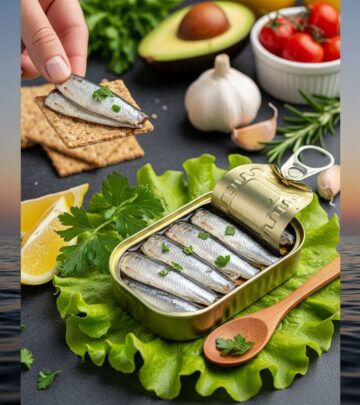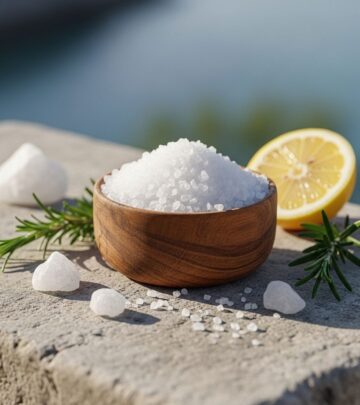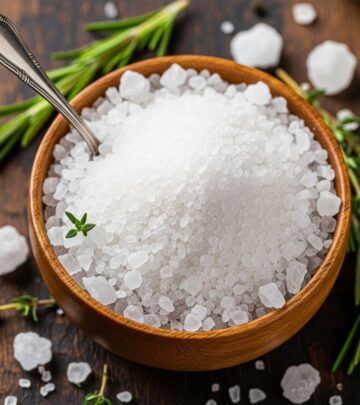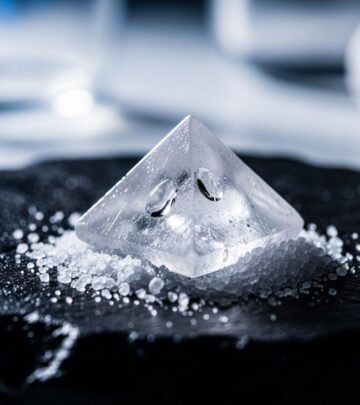Effective Home Remedies to Manage Bacterial Vaginosis Naturally
Science-backed therapies soothe irritation and help rebuild healthy flora.
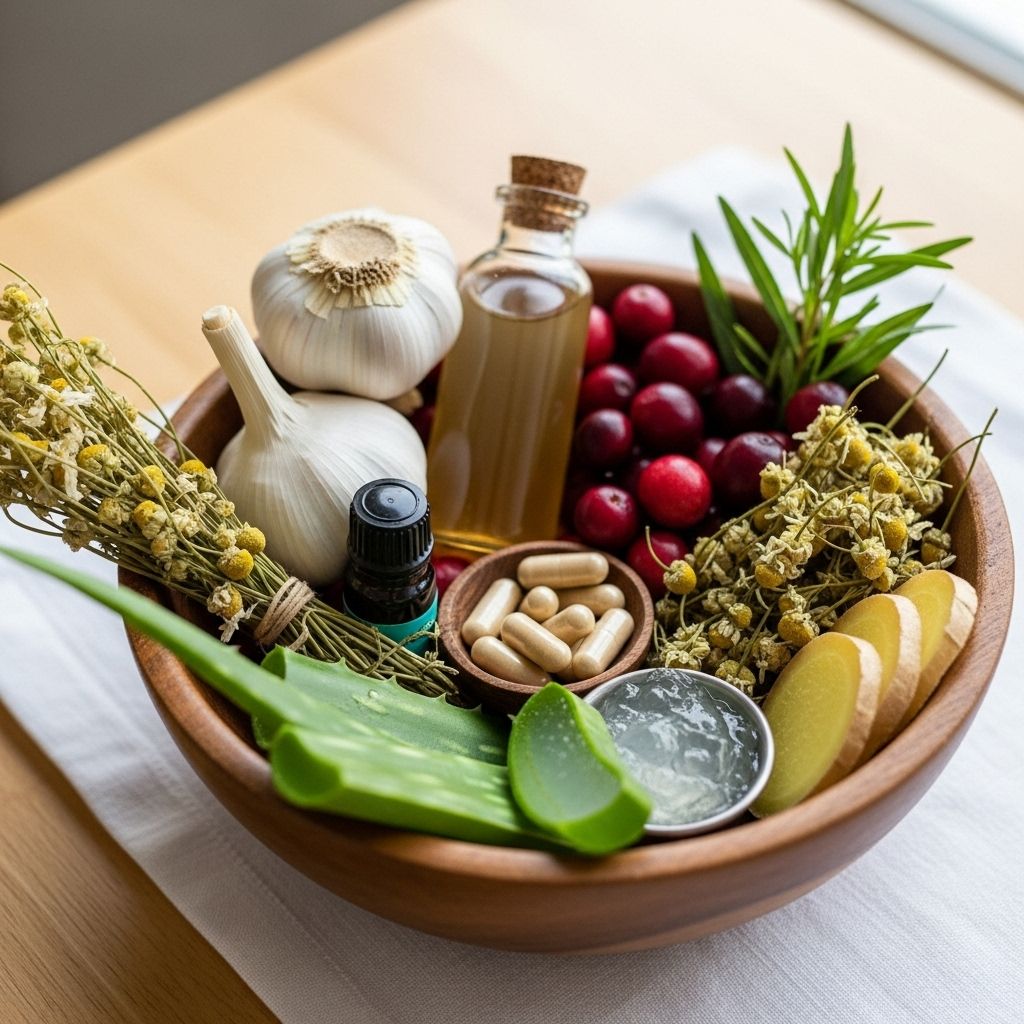
Home Remedies to Get Rid of Bacterial Vaginosis
Bacterial vaginosis (BV) is a common and uncomfortable vaginal infection resulting from an imbalance in the vaginal microbiota. While medical treatment with antibiotics remains the standard approach, many women seek alternative and natural methods to manage BV symptoms and prevent recurrence. This article presents evidence-based home remedies, their possible benefits, and guidelines for safe practice, as well as expert tips for prevention and answers to frequently asked questions.
Table of Contents
- What is Bacterial Vaginosis?
- Signs and Symptoms of BV
- Home Remedies for Bacterial Vaginosis
- Probiotics
- Yogurt
- Tea Tree Oil
- Boric Acid Suppositories
- Hydrogen Peroxide
- Garlic Supplements
- Herbal Remedies
- Apple Cider Vinegar
- Additional Natural Options
- Prevention Tips
- When to See a Doctor
- Frequently Asked Questions
What is Bacterial Vaginosis?
Bacterial vaginosis is an infection caused by an imbalance in the normal bacteria present in the vagina. In a healthy state, Lactobacillus species dominate the vaginal environment, maintaining an acidic pH and protecting against harmful pathogens. BV occurs when there is an overgrowth of other types of bacteria, leading to symptoms like unusual discharge, odor, and discomfort.
Signs and Symptoms of BV
- Thin, watery vaginal discharge (typically gray or white)
- Foul or fishy vaginal odor, especially after intercourse
- Vaginal itching or irritation
- Burning sensation during urination
- Mild pelvic discomfort
While some women may not experience noticeable symptoms, BV can still pose risks if left untreated — particularly for pregnant women or individuals with recurrent infections.
Home Remedies for Bacterial Vaginosis
Although antibiotics are the first-line treatment, several home remedies and natural therapies have been investigated for their potential to relieve BV symptoms or support vaginal health. The effectiveness and safety of these remedies vary, and clinical evidence remains limited for many options. Always consult a healthcare provider before relying on home remedies, especially if you are pregnant or immunocompromised.
Probiotics
Probiotics are live beneficial bacteria, often found in supplement form or foods like yogurt, that may help restore vaginal flora.
- Clinical evidence supports oral and some vaginal probiotics for reducing BV recurrence and symptoms.
- Lactobacillus acidophilus, Lactobacillus rhamnosus, and Lactobacillus reuteri are commonly recommended strains.
- They may be taken as oral capsules or in certain vaginal formulations designed to balance the microbiome.
- Choose reputable brands, as supplements are not strictly regulated.
Note: Some studies do not support probiotics as a replacement for antibiotics, but they may be helpful as adjunct prevention.
Yogurt
Hello Yogurt is naturally rich in Lactobacillus bacteria and is commonly suggested as a dietary remedy for vaginal health.
- Eating plain, probiotic-rich yogurt may help replenish healthy bacteria.
- Do not apply yogurt inside the vagina, as this may worsen or prolong symptoms.
- Choose unsweetened, live-culture yogurts for maximum benefit.
Tea Tree Oil
Tea tree oil is a potent essential oil with antimicrobial and antifungal properties. It has shown in laboratory studies to inhibit the growth of some BV-causing bacteria.
- Recommended for external topical application when diluted — never apply undiluted oil directly or inside the vagina.
- Always perform a patch test to check for allergic reaction.
- There is insufficient clinical evidence to recommend tea tree oil as a primary BV treatment.
Boric Acid Suppositories
Boric acid vaginal suppositories have become increasingly popular for treating BV and preventing recurrence.
- Boric acid helps normalize vaginal pH and can disrupt biofilms formed by harmful bacteria.
- Often used as adjunct therapy with prescribed antibiotics, not as a replacement.
- Safe for non-pregnant women, but must not be ingested or used during pregnancy.
- Follow dosage instructions closely and consult a healthcare provider.
Hydrogen Peroxide
Hydrogen peroxide has mild antibacterial action and has shown some effectiveness in clearing vaginal odor and restoring pH in small studies.
- Commonly used as a vaginal wash in diluted concentrations (never full strength).
- Potentially soothing but not proven to eradicate BV.
- Safety as a long-term remedy has not been established.
Garlic Supplements
Garlic is renowned for its antibacterial activity and has been studied for BV treatment.
- Oral garlic supplements may reduce BV symptoms through immune support and antimicrobial effects.
- Do not insert raw garlic or supplements inside the vagina, as this can cause irritation or burns.
- Incorporate garlic into meals or consult about supplement tablets.
Herbal Remedies
Certain herbs with antibacterial and anti-inflammatory properties may be beneficial for BV:
- Calendula officinalis (pot marigold) — Studies suggest that vaginal creams containing calendula extract can be as effective as antibiotics in some cases.
- Berberis vulgaris (barberry) — May reduce bacteria and biofilm formation linked to BV.
- More research is needed before recommending herbs alone as BV treatment; consult a doctor before use.
Apple Cider Vinegar
Apple cider vinegar is widely touted as a remedy for various infections.
- Some people take apple cider vinegar baths or use diluted douches, aiming to restore vaginal acidity.
- No clinical research supports the efficacy of apple cider vinegar for treating BV, and douching may worsen infection risk.
- Better to use apple cider vinegar in your diet than as a direct application.
Additional Natural Options and Emerging Therapies
Recent research is exploring more innovative solutions that may become available in the future:
- Activated Charcoal: Studied for its toxin-binding and potential benefits for vaginal infections, but not established in clinical practice.
- Phage Therapy: Using bacteriophages to specifically target pathogenic bacteria.
- Vaginal Microbiota Transplantation: A developing field for restoring healthy flora.
- Biofilm Disruption: Using agents to break down the protective layer of bacteria.
These therapies are not yet widely available and should only be pursued under specialist care.
Prevention Tips for Bacterial Vaginosis
Smart Hygiene and Lifestyle Practices to Reduce BV Risk
- Avoid douching, scented vaginal products, and harsh irritants.
- Practice safe sex (use barrier protection, urinate after intercourse).
- Maintain regular vulvovaginal hygiene (use gentle, unscented soap).
- Wear loose, breathable cotton underwear and avoid tight clothes.
- Change out of wet swimwear or workout clothes promptly.
- Take probiotic supplements or eat fermented foods to support microbiome.
- Minimize unnecessary antibiotic use.
When to See a Doctor
Although home remedies may support comfort and prevention, BV must be evaluated by a healthcare professional—especially if you:
- Have persistent symptoms lasting longer than one week
- Are pregnant, immunocompromised, or have recurrent infections
- Notice severe pelvic pain, fever, or unusual bleeding
- Have concerns about potential sexually transmitted infections (STIs)
Antibiotics such as metronidazole or clindamycin are usually prescribed and highly effective. Home care should supplement, not replace, medical advice.
Frequently Asked Questions (FAQs)
Q: Can bacterial vaginosis be cured at home?
A: While some home remedies (e.g., probiotics, dietary garlic, boric acid suppositories) may help manage BV symptoms and reduce recurrence, antibiotics prescribed by a healthcare provider remain the most effective cure. Always consult your doctor if you suspect BV.
Q: Which foods help prevent or recover from BV?
A: Foods rich in probiotics (yogurt, kefir, sauerkraut) and those containing garlic may support a healthy vaginal flora. A balanced diet with fruits, vegetables, and whole grains helps overall immunity.
Q: Is it safe to use herbal approaches or homemade remedies?
A: Some herbal creams (calendula) and supplements (Berberis, garlic) show promise in studies, but direct application inside the vagina without medical advice can be unsafe. Always consult a medical provider before use.
Q: Can I prevent BV from coming back?
A: Regular hygiene, avoiding douching and scented products, practicing safe sex, and taking probiotics may help prevent recurrence. Medical management is needed if infections are frequent.
Q: What should I avoid if I have bacterial vaginosis?
A: Avoid douching, scented soaps, vaginal deodorants, and tight synthetic underwear, as these can disrupt the healthy microbiome and worsen symptoms.
Q: Is BV dangerous if left untreated?
A: Untreated BV can increase the risk of STIs, complications during pregnancy, pelvic inflammatory disease, and discomfort. Timely treatment ensures protection from more serious health outcomes.
Summary Table of Home Remedies, Evidence, and Risks
| Remedy | Evidence | Recommended Use | Main Risks |
|---|---|---|---|
| Probiotics | Supported for prevention and adjunct treatment | Oral supplements, select vaginal preparations | Unregulated brands may be ineffective |
| Yogurt | Limited evidence | Consume orally | Do not apply vaginally |
| Tea tree oil | Laboratory support, little clinical data | External dilution only | Irritation, allergic reaction |
| Boric acid | Strong clinical support for adjunct use | Vaginal suppositories | Toxic if ingested, not for pregnancy |
| Hydrogen peroxide | Limited small studies | Diluted vaginal wash | Irritation, pH disruption |
| Garlic | Supported for oral use, not for vaginal | Eat or take supplements | Not for direct vaginal application |
| Herbal creams (Calendula, Barberry) | Emerging evidence, mostly external use | Vaginal cream, oral supplements | Irritation, allergies |
| Apple cider vinegar | No clinical support for douching; possible dietary support | Include in diet only | Risk of infection when douching |
Final Thoughts
While natural home remedies may support overall vaginal health and relief from mild BV symptoms, they are not substitutes for qualified medical care. Practice safe and gentle hygiene, take probiotics for general wellness, and consult healthcare professionals before trying any new treatment. Early diagnosis and proper management can protect vaginal and reproductive health for years to come.
References
- https://khealth.com/learn/bacterial-vaginosis/home-remedies-for-bacterial-vaginosis/
- https://www.healthline.com/health/home-remedies-forbacterial-vaginosis
- https://www.medicalnewstoday.com/articles/317562
- https://naturemed.org/natural-treatment-for-bacterial-vaginosis/
- https://www.evvy.com/blog/home-remedies-for-yeast-infections
- https://my.clevelandclinic.org/health/diseases/3963-bacterial-vaginosis
- https://pmc.ncbi.nlm.nih.gov/articles/PMC10264601/
- https://www.webmd.com/women/remedies-relieve-bacterial-vaginosis
- https://femiclear.com/blogs/learning-hub/the-brutally-honest-guide-to-natural-bv-remedies-separating-fact-from-fiction
- https://www.nhs.uk/conditions/bacterial-vaginosis/
Read full bio of medha deb


